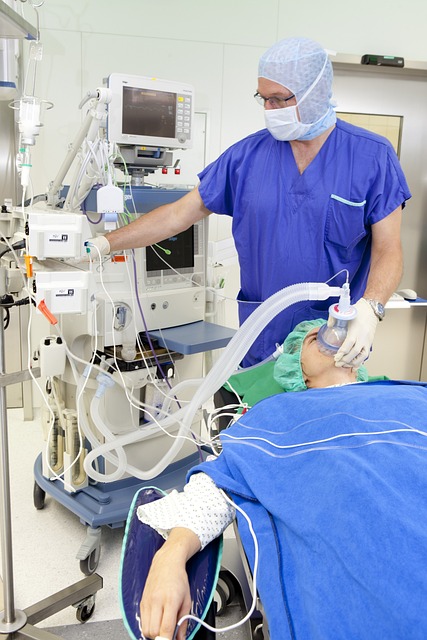CRNA: Jobs and Duties and How to Find the Perfect Position

Certified Registered Nurse Anesthetists (CRNAs) play a vital role in the healthcare system, providing safe and effective anesthesia care to patients across a wide range of medical procedures. As advanced practice registered nurses with specialized training in anesthesia, CRNAs are essential members of anesthesia care teams, working collaboratively with surgeons, anesthesiologists, nurses, and other healthcare professionals to ensure optimal patient outcomes. With their expertise in administering anesthesia, managing pain, monitoring vital signs, and responding to emergency situations, CRNAs uphold the highest standards of patient safety and comfort throughout the perioperative process. Their pivotal role in delivering anesthesia services makes CRNAs indispensable contributors to the delivery of high-quality healthcare services in diverse clinical settings.
Why CRNAs Love their Jobs
Certified Registered Nurse Anesthetists (CRNAs) are drawn to their careers for several compelling reasons. Firstly, their specialized skills in anesthesia administration make them highly sought after across various healthcare settings, ensuring good job stability and opportunities for advancement. Additionally, CRNAs typically enjoy competitive salaries commensurate with their advanced training and responsibilities, as they are usually in high demand. They also benefit from a high degree of autonomy in their practice, allowing them to make critical decisions about anesthesia care and patient management either independently or collaboratively.
Moreover, the diversity of practice settings available to CRNAs, including hospitals, surgical centers, obstetric units, and pain management clinics, enables them to explore different areas of anesthesia practice aligned with their interests and career goals. The challenging and rewarding nature of anesthesia care, which requires a blend of clinical skills, critical thinking, and decision-making abilities, provides CRNAs with professional fulfillment as they ensure patient safety and comfort during surgical procedures. Contributing to positive patient outcomes helps CRNAs foster a sense of professional fulfillment.
Furthermore, CRNAs have ample opportunities for continual learning and growth, staying abreast of advancements in techniques, medications, and technology to deliver optimal care.

How to Choose the Right Position as a CRNA
Choosing the organization to work in as a Certified Registered Nurse Anesthetist (CRNA) involves careful consideration of various factors to ensure a good fit for both professional and personal preferences. Here are some steps a CRNA might take to make this decision:
Compensation and Benefits: Evaluate the compensation and benefits package offered by potential employers, including salary, bonuses, retirement plans, health insurance, paid time off, and other perks. Consider how the compensation package aligns with your financial goals and lifestyle needs.
Research: Conduct thorough research on potential employers, including hospitals, surgical centers, and healthcare organizations. Consider factors such as the organization’s reputation, patient population, case mix, technology and equipment available, and organizational culture.
Location: Consider the geographic location of the job and its proximity to family, friends, and preferred lifestyle amenities. Evaluate factors such as cost of living, climate, recreational opportunities, and access to healthcare and other services.
Practice Setting: Determine the type of practice setting that aligns with your preferences and career goals. CRNAs can work in various settings, including academic medical centers, community hospitals, ambulatory surgical centers, urgent cares, and specialty clinics. Consider the size, scope, and patient population served by each setting.
Scope of Practice: Assess the scope of practice and professional autonomy offered by potential employers. Evaluate factors such as the level of collaboration with anesthesiologists and other healthcare providers, opportunities for leadership and decision-making, and support for continuing education and professional development.
Work Schedule: Consider the work schedule and on-call requirements associated with the job. Evaluate factors such as shift lengths, call frequency, weekend and holiday coverage, and opportunities for flexible scheduling or work-life balance initiatives.
Professional Development Opportunities: Assess the opportunities for professional growth and advancement available within the organization. Consider factors such as mentorship programs, opportunities for additional training and certification, involvement in research or quality improvement initiatives, and potential for leadership roles.
By carefully evaluating these factors and considering personal and professional preferences, CRNAs can make informed decisions when choosing the right hospital or job opportunity.
CRNA Positions Available Now
As a trusted healthcare recruiting company, Momentum understands the importance of finding the right CRNA job that aligns with your personal and professional goals and know it can be a daunting mission when faced alone. Our team is dedicated to assisting you in navigating the complex healthcare landscape and matching you with opportunities that best suit your skills, preferences, and career aspirations. Whether you’re seeking a position in a private medical center, a community hospital, or a veteran’s clinic, we’re here to support you every step of the way. Let us help you find the perfect CRNA job where you can thrive and make a meaningful impact on patient care.
Sources:
Aana.com
Pocketprep.com
Mastersnursing.com
Openai.com








Recent Comments